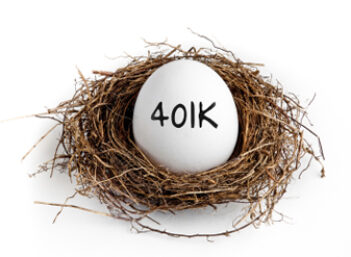If you'd like us to answer one of your investing questions in our weekly Ask The Expert Q&A column, email us at [email protected]. (Note: We will not respond to requests for stock picks.)
Over the past two decades, the stock market has soared, plunged, rose steadily higher, plunged again and so on. That's a fairly chaotic backdrop for anyone trying to glide into retirement with a rock solid nest egg. And that's the main focus of today's question.
Question: I'm 10 years from retirement. My parents had 80% in bonds by the time they retired. How much should I have in stocks and how much in bonds?
Ruth L., Maplewood, N.J.
The Investing Answer: Ruth, your parents were following conventional wisdom, steadily shifting their nest egg away from risky assets (stocks) into almost risk-free assets as they settled into a different, more predictable stage of their lives. Yet two things have happened to upend the conventional wisdom: People are now living a lot longer, and bonds no longer deliver the bang for the buck that they once did.
So you should probably think of the question in an entirely different context. Rather than skewing your investments toward bonds as retirement day beckons, stay flexible and take what the markets (and the economy) give you.
Let me give a personal example that may shed some light. Roughly a decade ago, my mother was establishing plans to retire within a few years, and I suggested that she gradually reduce her heavy dependence on stocks. She was loath to do so, as the stock market had been very good to her.
By the time the financial crisis hit in 2008, my mom saw her portfolio plunge in value, as did many other investors. As the market rebounded over the past few years, and her portfolio has rebounded in tandem, I've implored her to take advantage of that good fortune and sell stock and buy bonds. After all, she's now retired and shouldn't put her nest egg in peril.
'No way,' is my mom's response. 'Where else am I going to go?'
She's got a point. If she sells stocks while interest rates remain near multi-decade lows, she's not going to make much money in low-yielding bonds or CDs.
More to the point, just because she is now retired, my mom has no plans to walk off into the sunset. She expects to live for several decades to come and, with a bit of luck, might even break the century mark. Equally important, she can live off other assets, including Social Security, in her early years of retirement, and start to dig into her portfolio for living expenses later on.
Indeed, that's the question you should be asking yourself, Ruth: How soon after retirement will you need to start living off of your nest egg. If you have other assets to draw upon, then you may not need this money for a while.
For example, many retirees sell their home and downsize to a smaller home, which can often free up a considerable amount of cash.
Watch And Wait
Of course, this whole logic applies to an era of low interest rates. And make no mistake, this era won't last forever. Whether it's 18 months from now or five years from now, the U.S. economy will eventually revert back to health, and when that happens, interest rates are bound to be two or three percentage points higher than they are now. At that point, a steady shift from stocks to bonds makes real sense.
Still, you can adjust the kinds of stocks you own as you near retirement. It's no coincidence that many people in your generation are focusing on dividend-paying stocks, which tend to be more stable than growth stocks. By the time you are ready to retire, there should be very few high-risk, high-reward stocks and funds left in your portfolio.
One final thought: When interest rates finally start to rise and you want greater exposure to bonds, it's wise to take the 'bond laddering' approach.
Every time one of the short-duration bonds comes up for redemption, you can decide whether you need the cash or prefer to put the funds right back into another short-term bond, while leaving your longer-term, higher-yielding bond portfolio intact.
Remember, Ruth, just because retirement is just a decade away, you may face living expenses for many decades to come. That's why it's unwise to shift prematurely into a defensive crouch.



